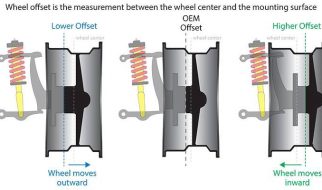Understanding the powerful persuasive dimensions of the phrase
 Photo: Chris Liverani/Unsplash
Photo: Chris Liverani/Unsplash
I scrawl my signature on the food and drink bill at a rooftop German pub called Luft in downtown Bismarck, North Dakota. I nod to the suspender-wearing server and tell him ?thanks.? He reciprocates the gratitude. Then, before walking away, he says, ?I appreciate you.?
About a year later, my wife and I meet up with some friends in the south part of Minneapolis. We decide to go to Bull?s Horn, a self-proclaimed ?classic bar.? Upon taking seats at the bar, we overhear the bartender announce, ?I appreciate you? to another patron. Once we settle out an hour later, he professes his appreciation to us as well.
Before going to Bismarck and Minneapolis, I had never heard the phrase ?I appreciate you? used in a service industry. As a born-and-raised East Coaster, I figured that I might just not be familiar with a common Midwest expression. But, I couldn?t really tell. Was it evidence of a larger trend? Was it a new best practice within food and beverage establishments?
Overall, I liked the expression. I knew it worked. It made me feel good. And since it made me feel good, I could use it to make others feel good too. Therefore, as a manager and an educator, I figured I?d try it out in day-to-day interactions. However, within conversations, ?I appreciate you? never left my lips. Hovering somewhere between ?thanks? and ?I love you,? it felt potentially awkward, misunderstood, or inappropriate for the workplace. As such, I ended my ?I appreciate you? campaign before it began.
Months later, the clouds of skepticism dissolved. I received an email from a member of upper management thanking me for my work on a task. At the bottom of the email, just before his signature, he wrote, ?I appreciate you.?
There it was again. This time, in writing. This time, in the workplace. And it didn?t feel inappropriate.
In fact, I really appreciated him for appreciating me. Of course, he probably equally appreciated the rest of his team too, but that didn?t diminish his statement. It was a nice sentiment. It evidenced a humble and gracious leadership style.
From that moment on, I became convinced that ?I appreciate you? can serve as an effective professional expression. Several factors contribute to its persuasiveness:
1.) The arrangement
The sentence?s structure is deceptively simple: both audibly (when listening) and visually (when reading). The progression of the words within ?I appreciate you? mirrors the human-to-human bond expressed in the content. It begins with ?I? (the speaker/writer) and ends with ?you? (the listener/reader). The word ?appreciate? constructs a bridge ? like a handshake ? between the two parties. As a result, the positioning of the terms matches the message of the communication itself ? that is, the form folds into the function ? and enhances the persuasive appeal.
2.) The humanity
The Latin root of ?appreciate? means to ?set a price or value on? ? generally a higher price. When directed toward another party, the verb expresses a heartfelt acknowledgement of the other person?s human value. Consequently, the sentence ?I appreciate you? communicates that the speaker/writer respects more than the completion of duties; rather, the speaker/writer values the fundamental human dignity of the individual person. This emphasis on human value transcends the generic gratitude expressed by ?thanks? or ?thank you.?
The phrase ?I appreciate it? does not quite have the same effect as ?I appreciate you?. It directs the gratitude toward completed task rather than the person doing the task. Therefore, to optimize the warmth of our thankfulness, we can use ?you? in place of ?it.? The arranged word choices offer a humanized handshake between ?I? and ?you? that is not found between ?I? and ?it.?
3.) The length
The length of a sentence or utterance extends beyond the amount of words. It also extends to the amount of syllables. For instance, although ?Thank you much? offers the same amount of words as ?I appreciate you,? the former takes half as much time to say (?Thank you much? = three syllables) than the latter (?I appreciate you? = six syllables). Although efficiency is a valuable dimension of communication, taking more time to deliberately express appreciation can signify a higher level of sincerity. To this end, a more robust ?I appreciate you? can communicate more gratitude than a curt ?thanks? or ?thank you.?
If we really want to extend our appreciation, but feel that ?I appreciate you? still may be misinterpreted in the workplace, we may want to use ?I appreciate all that you do here at Company X.? Although this longer statement may not spotlight human dignity as deeply (since it emphasizes what they do rather than who they are), it more transparently pinpoints the professional nature of our gratitude. The synergy of respect, specificity, and transparency can be quite persuasive.
In sum ?
I?m still not sure if ?I appreciate you? is merely regional Midwest etiquette or a larger trend of gratitude. Admittedly, it may not work in all occasions ? such as a sports bar in South Boston or a poolhall in West Philly. However, in many professional contexts, the phrase can provide us with a powerful alternative when ?Thanks? may not pack enough power.


